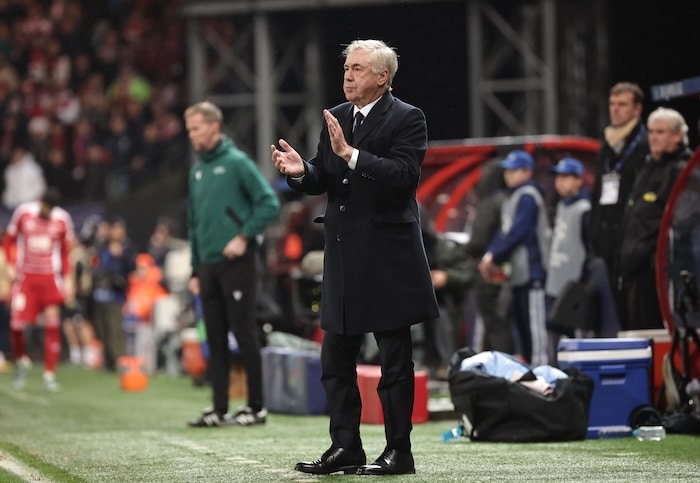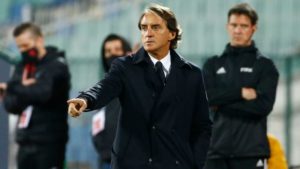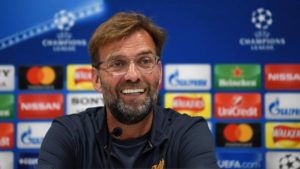Carlo Ancelotti will go down as one of the greatest coaches in world football. But what makes him so successful? Ask Nick Said.
The UEFA Champions League round of 16 is played this month as we get down to the business portion of the competition after a long and complicated group phase and play-off round.
The knockout rounds are not for the faint-hearted and require coaches to come up with tactical masterplans to out-think their opponents and get the best out of the players they have at their disposal.
Over the years Real Madrid coach Carlo Ancelotti has proven to be one of the best at outwitting opponents. Ancelotti is the most successful coach in Champions League history with five titles.
Two titles came with AC Milan, though he will know it should have been three.
His side led Liverpool 3–0 at halftime in the final in Istanbul in 2005, and lost on penalties.
But that capitulation is on his players, not him. He has added three more wins with Real, and has an impressive success rate of five out of six finals won.
Twenty coaches have lifted the UEFA Champions League trophy more than once, but only four have done it more than twice.
Pep Guardiola, Bob Paisley and Zinedine Zidane are the Italian’s nearest challengers, all three-time winners.
Ancelotti is also among only six coaches to win the trophy with multiple teams, and one of just seven who have won as both players and coaches.
He was also a two-time winner as a player with Milan in consecutive seasons between 1988 and 1990.
So what is the secret to his success in arguably the toughest cup competition in the world?
Those victories as a player will have taught him much about how to go all the way and what is required from both a player and coach perspective, even if in those days it was a straight knockout competition.
Arrigo Sacchi, an all-time great Italian coach who was in charge of the Milan side that won back-to-back titles in the late 1980s with Ancelotti in the team, is a keen admirer of his former player.
He says Ancelotti is pragmatic, and perhaps not the most flamboyant or attacking coach, but he knows how to set up a team to win, even if the football is not always pretty.
“Ancelotti is such a good coach and so convincing that he managed to get the Spanish public – particularly demanding when it comes to entertainment – to accept a largely defensive performance,” Sacchi told Gazzetta dello Sport.
“I don’t know if he is the best coach in the world, but he’s certainly up there. He knows everything about football, managing with experience and wisdom, never letting himself be found unprepared.”
This meticulous attention to detail and non-reliance on individual brilliance, despite the superb players he has in his team, makes for an effective strategy in knockout football.
“Carlo studied the opponents, designed how to block or at least limit their strengths, and was not just trying to defend in the hope that someone upfront would resolve the problem for him,” Sacchi said.
“Ancelotti decides what to do based on the resources at his disposal, and that too is a quality that too few coaches possess.”
Sacchi says Ancelotti is hugely popular with his players and creates a positive atmosphere in the teams he coaches.
“Another important aspect is that none of the champions who worked with Carlo speak badly of him. That has to mean something, right? Too often the human factor is ignored in favour of systems, modules and tactical issues,” Sacchi said.
“Instead, Ancelotti is authentically world class in dealing with the human factor, proving with his career that this aspect of coaching can make the difference. He won in the top five European leagues, always with a precise style of football and never going against his nature.
“He remained the same simple, reliable and amusing lad I met in the summer of 1987 and never changed. Too often, success goes to people’s heads and changes them, but Carlo’s values are solid, indestructible.”
Many coaches are rigid in the way they set up and manage their teams, having a strict philosophy that they do not waiver from.
Ancelotti is a case in point, you know exactly how his side will try to play, it is just whether you can counter it.
He has been known to play 4–4–2, 4–3–3 or and 4–2–3–1, depending on his team, the opposition and what he needs from the game.
He does not try and fit square pegs into round holes, and rather tailors his tactics to maximise the strengths of his players.
He is big on positional discipline though and does not like his players to be spontaneous and deviate from their roles.
He has always had sides that are good on transition, with the ability to counter-attack quickly and catch the opposition on the back foot.
This allows him to implement one of his other great strengths, making sure his sides are compact and defensively sound.
They may lose something in the traditional attacking sense by doing that, but if they can counter quickly and effectively, it negates that.
His ability to read the game and make changes according to what is happening on the pitch is also revered.
That may seem obvious, but many coaches stick to Plan A, whether they are 2–0 up or 2–0 down.
Ancelotti rather changes his approach mid-stream based on the need and is able to quickly come up with new tactical plans.
Perhaps tellingly as well, while he always strives to win and be successful with his clubs, Ancelotti cuts a cool figure who does not take himself, or the game, too seriously.
“Football is the most important of the less important things in the world,” he once said. Ancelotti’s legacy is likely to continue evolving throughout the years.





